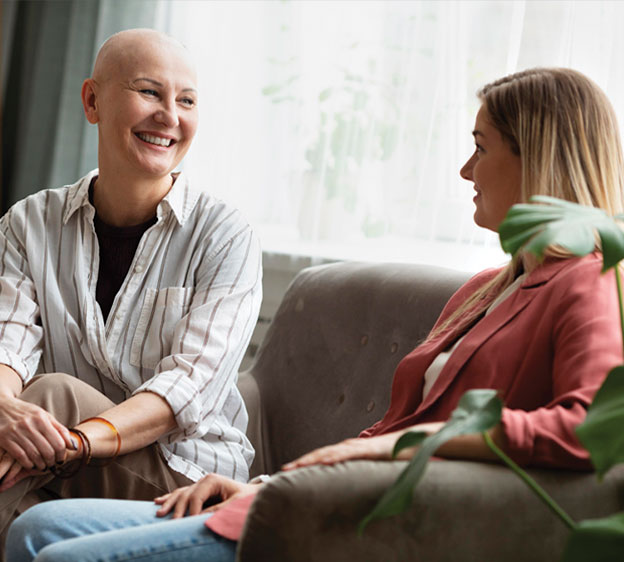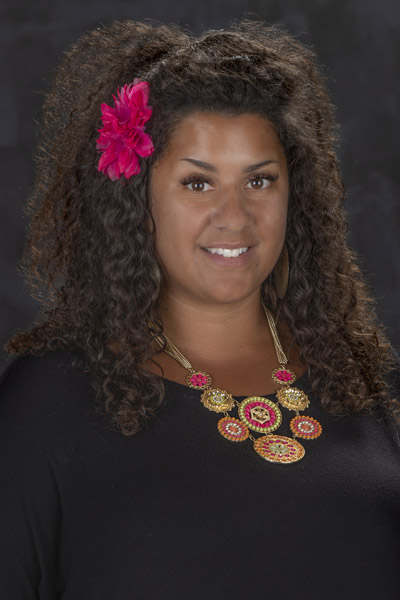Cancer Support: How to Talk to and Support Loved Ones With Cancer
November 14, 2023Categories: Cancer

When someone you love shares troubling news of any kind, your natural inclination is likely to help them solve the problem or offer advice on how to deal with the situation. When someone you love tells you they have cancer, you can’t offer an easy fix, and you may not know what to say. Still, your support is crucial. Research has shown that for people with cancer, support can help their outlook and improve their quality of life.
The first step to being a source of support is understanding what kind of resources your loved one with cancer needs.
Read More: The Mind of a Cancer Fighter
Emotional Cancer Support
People with cancer are struggling to process difficult news. When they share it with you, you can:
Be mindful of your initial reactions. A cancer diagnosis can make people feel powerless. The patient may feel powerless against the disease, and we feel powerless to help them.
“While your initial response may be to offer a solution or advice, the best way to respond is to listen,” says Kianna Brown, licensed oncology social worker who facilitates two cancer support groups at Beaufort Memorial Keyserling Cancer Center. “Show compassion, so they know you’re there for them.”
Be encouraging. It’s natural for cancer patients to worry about the future and what might happen if treatments are ineffective. Offer encouragement that helps them focus on the present moment, for example, “You were diagnosed and now you can get treatment,” or, “I’m here to help you get through this.”
Accept the reality of their diagnosis. While you want to be encouraging, be aware that the situation is very difficult for the patient. Hearing “Everything will be OK,” or, “You’re strong enough to beat this,” may not be helpful if they don’t think everything will be OK or aren’t feeling very strong.
Listen without judgment. Not all patients need encouragement. Some just want to express how they feel. Allow your loved one to vent or share their worries without judging how they feel. Often, you don’t even need to respond. Simply allowing them to talk it out can be a big help for them. It’s also important to understand that every cancer patient’s journey is unique. Avoid talking to your loved one about the experience of other cancer patients.
“Just because someone familiar to the loved one had certain symptoms, experiences, or a specific treatment plan, that doesn't mean that the patient they are speaking with is going to have that same journey,” Brown says. “It actually can induce anxiety and, in sharing the story of another patient, one can actually take away from the journey of the cancer patient they are speaking with, even though this is likely unintentional.”
Respect their wishes and opinions. “People with cancer and their caregivers must make hard decisions about treatment,” Brown says. “Recognize that they did not make these decisions lightly and they had the input of oncologists and other health care providers. If they ask for your advice or opinion, feel free to offer it, but unsolicited advice may come across as judgmental.”
Talk about what they want to talk about. As patients and their caregivers progress through appointments and treatments, they learn how to live with cancer every day. They may not want to talk about cancer when they’re with you. Let them lead the conversation.
Finally, don’t let a cancer diagnosis affect your relationship. The person with cancer is still the person you knew before the diagnosis. Continue seeing them as often as you did before the diagnosis and talking about the same things you both care about. They will likely appreciate feeling normal in the middle of a very stressful time.
Support for Cancer Caregivers
Caregivers are under a lot of stress, even more so if the patient has advanced-stage cancer. They need as much emotional and tactical support as patients do. But, many caregivers find it hard to ask for help.
The advice mentioned above can help a friend or loved one caring for someone who has cancer, but if you have the time and energy to offer physical help, there are many other ways you can offer assistance:
- Accompany the caregiver or patient to a cancer support group. These groups allow patients and caregivers the chance to discuss concerns with other people having similar experiences.
- Do (or arrange for help with) household chores, such as cleaning and yard maintenance, they don’t have the energy to tackle.
- Offer to help arrange for financial or legal assistance if you feel comfortable doing so.
- Organize a meal train, order meal delivery or prepare a meal for your loved one so they don’t have to cook.
- Serve as the contact person who keeps others updated on the patient’s care.
- Volunteer to take the patient to their appointments or to sit with the patient during treatment so the caregiver can run errands.
Read More: Others With Cancer Provide Help and Healing
Ways to Offer Long-Distance Cancer Support
If you live a long way from the person with cancer, it may feel as though there’s nothing you can do to help. There are many ways you can offer long-distance support, though.
- Call them regularly or organize video calls if they are comfortable doing so.
- Research educational resources. The American Cancer Society is a good starting point. Nonprofits that focus on specific types of cancer can offer advice and information tailored to your loved one’s diagnosis.
- Take on financial responsibilities, such as paying bills, troubleshooting issues with health insurance and arranging for home care. If the patient is older, you can work with a legal professional to help with documentation, such as healthcare power of attorney, living wills and other paperwork that can be managed electronically.
“Whether you live close by or far away, people with cancer need as much support as you can give,” Brown says. “Don’t feel guilty if all you can do is call them on the phone or send them a card. Simple acts of kindness like those can go a long way toward helping someone deal with a difficult diagnosis.”
Are you looking for support for yourself or a loved one with cancer? Attend our Cancer Support Group and meet others who can relate to what you’re going through.

